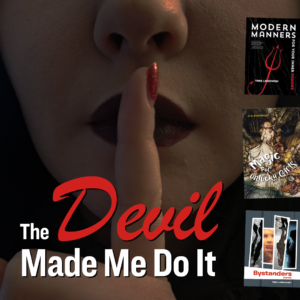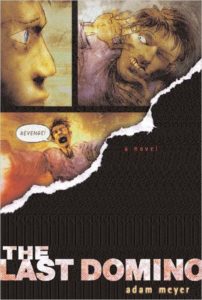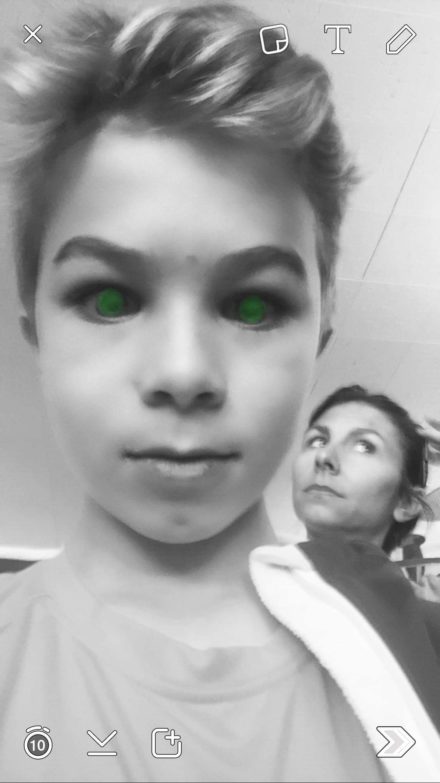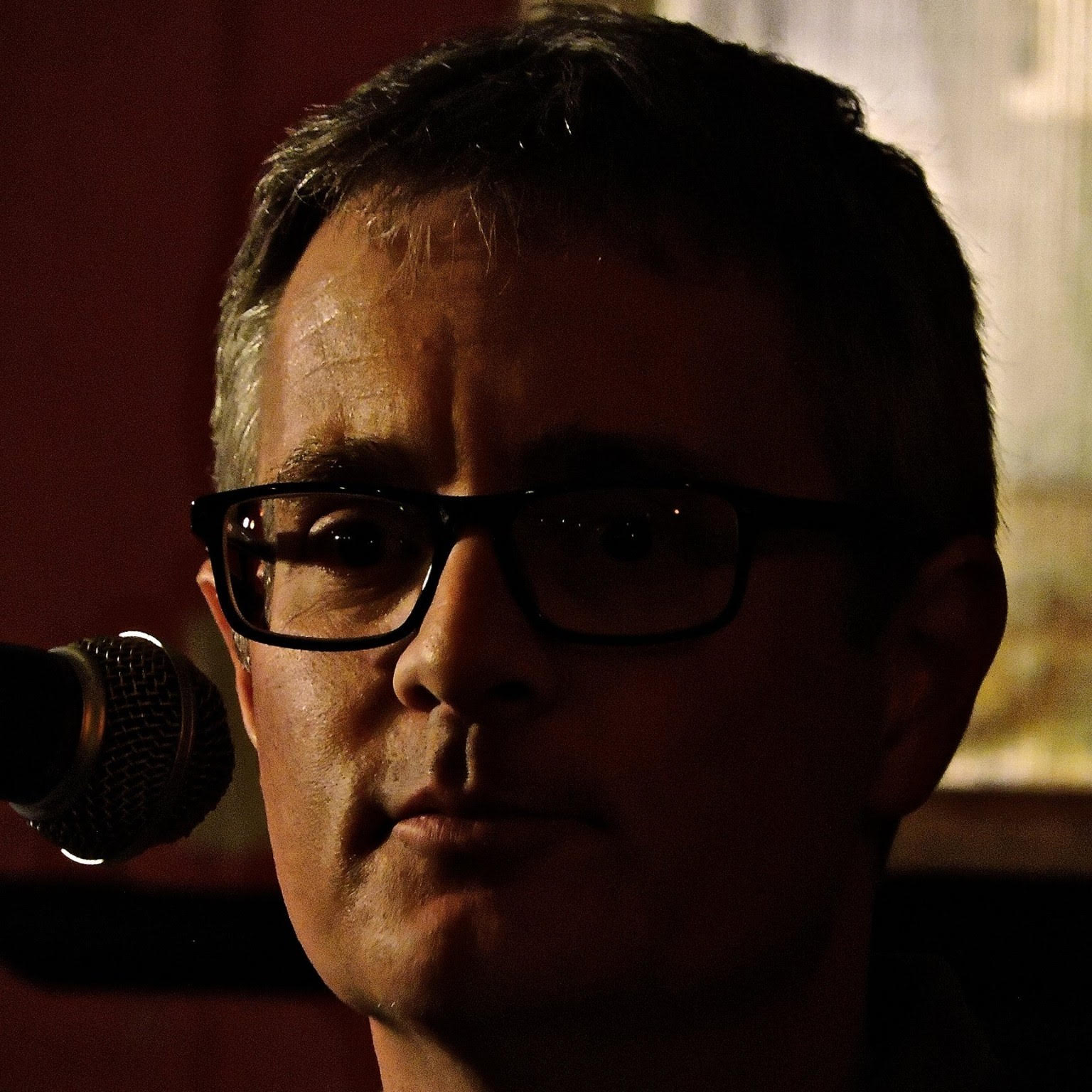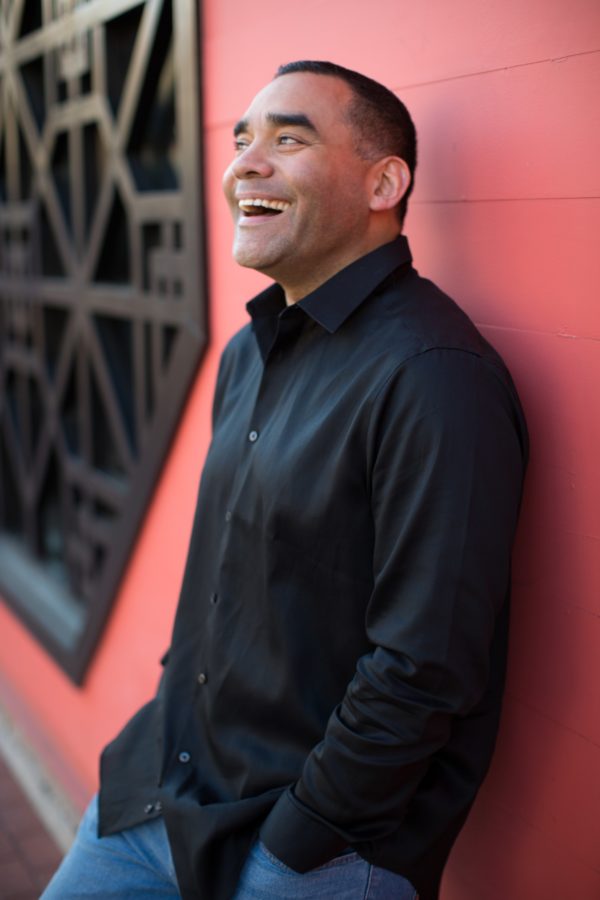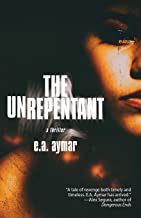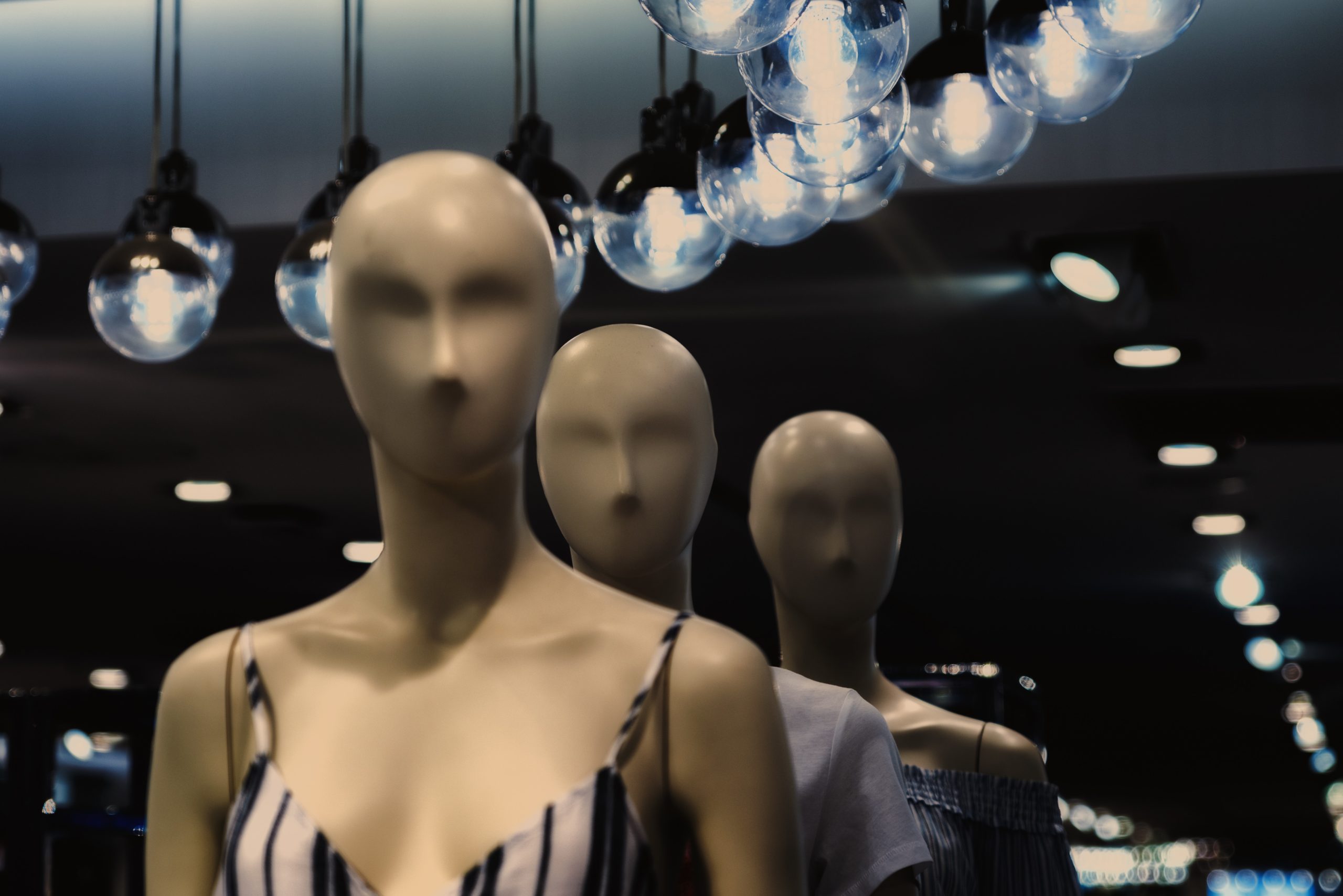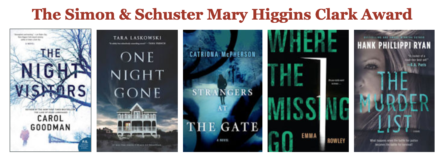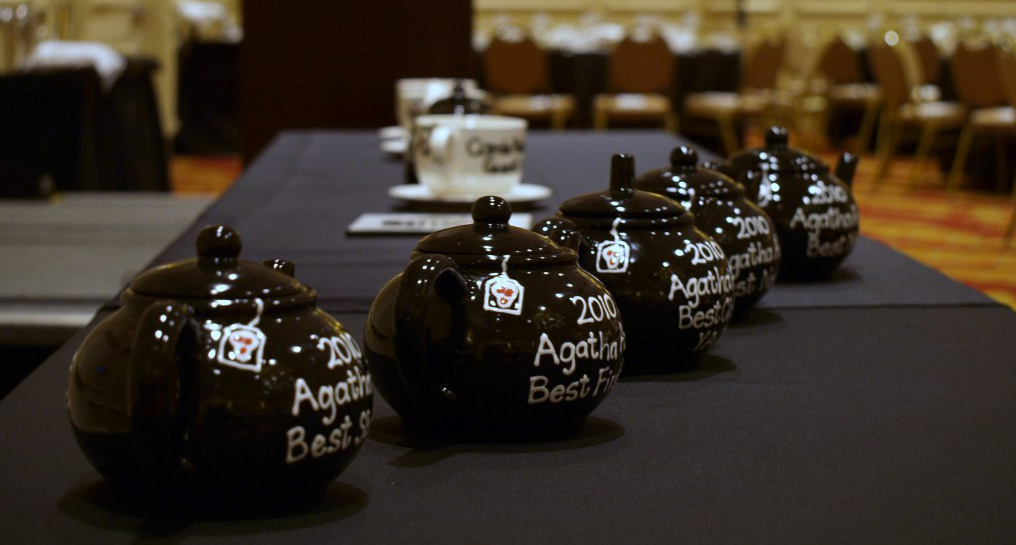I love reading these interviews when they come in. I love the mix of stuff I’ve never heard of and things I totally relate to. I love hearing what my friends, writers I admire, get freaked out about.
I also always feel like I learn something each time–and this time is no exception. The answers that Anjili gives here are so super smart. I kept reading this and saying to myself, “Yes! Exactly! I could never have articulated it like that, but YES.”
Here, my friends, is a scholar and a wordsmith. (Who’s afraid of helicopter blades.) And Anjili, once this weird plague virus is over, let’s get beers.
What is your greatest fear?
I feel like I need to address the elephantine fear in the room right off the bat. Obviously, I am writing this during a global pandemic. I am confined to my apartment, isolated from friends and family, doing my best to flatten the curve, and worrying about the health and safety of the entire world—just like essentially everyone I know. In other words, my greatest fears, which seemed as unique as everyone else’s a few weeks ago, will probably sound pretty familiar to anyone likely to read this now. It would be easy to draw the conclusion that, for a lot of us, what seem like idiosyncrasies of terror are actually just different manifestations of the same concerns. I haven’t decided whether this possibility is comforting or not. On one hand, it is reflective of shared humanity. On the other, if we are all afraid of the same things at heart, then those fears are remarkably powerful…and remarkably warranted. How’s that for an optimistic start?
What is your earliest childhood memory of fear? Or the scariest thing you remember from childhood?
The first strong reaction of terror I remember was to W. W. Jacobs’s “The Monkey’s Paw.” That story haunted me in childhood, largely because of its cruel moral. We are taught from an early age that hopes and wishes are positive things: they help us to get through difficult times and to focus on goals for the future. I haven’t read the story since I was a child, but I remember that it was framed as a warning to be careful what we wish for, because we might be punished by the forms our granted wishes take. One of the wishes in that story is for the return of a loved one, and that is the part that upset me most. The suggestion that human attachment should result in punishment is horrible indeed. The implication seems to be that we need to fear the best of our nature as much as the worst of it. Of course, the story leaves an especially bitter taste in my mouth lately: I can’t count how often I have wished for more time at home, alone, to focus on my writing…and here we are. You suck, monkey’s paw.
What’s the scariest movie or TV show you’ve ever seen?
I just named a story that scared me as a child, but it stands out in my memory because I often feel like I am lacking some sort of “normal reaction” gene for horror fiction. This is not to say that I don’t appreciate horror; on the contrary, I seek it out and enjoy it. It’s also not to say that I dissociate while reading or watching it, but it tends to evoke empathy or anger in me, rather than fear. Monster stories, in particular, don’t scare me at all, and on the contrary, I sometimes find them comforting. I think this is because we create monsters as a way of defining, explaining, and creating artificial limitations for the evil that humans are sometimes capable of. People can be a lot more terrifying than monsters, because some of them are able to justify their actions to themselves, however horrible, and when they behave without compassion, it makes us doubt the humanity and potential of all of us. Also…you can’t just throw holy water or garlic at them and call it a day. [Embarrassing side note about my missing supernatural fear gene: when everyone was talking about how terrifying The Witch was, I had to text a bunch of friends to find out why it was supposed to be scary, like I was Mork from Ork or something.]
Do you have a recurring nightmare?
I did a lot of theatre as a child, and I am convinced that it has affected the structure of my dreams. Generally, this is a good thing: if a dream starts out frightening, my subconscious can often will it into something else, like a change of scene. Sometimes, though, the opposite is true: I’ll have a dream that begins as something seemingly innocuous, I’ll suddenly realize that I completely misunderstood the context, and then it’s as if I can’t change the scene, because I failed to adequately interpret it. For example, I’m in a park, watching children frolic in Halloween costumes. Suddenly, I realize that I have completely misread what is going on: one of the “children” is, in fact, a bear, and he is mauling people…not frolicking. Yes, my subconscious is about as pessimistic, transparent, and boring as possible in its warnings to always be vigilant and not let my guard down. For the record, I think it should lighten up a bit.

I’m in a park, watching children frolic in Halloween costumes. Suddenly, I realize that I have completely misread what is going on…
What is your weirdest fear?
In that other life—the one in which we can leave the house—I am afraid of any kind of spinning blade-type object: round saws, helicopter rotor blades…and windmills. But, no, I don’t believe they cause cancer, which makes me less weird than some people, I guess.
Who is the best villain, fictional or in real life?
The best fictional villains are the kind that have just enough of something good—charm, wit, intellect—to periodically lure us into forgetting they are villains and liking them a little bit. Banal villains are all around us in real life (to the misfortune of the windmills); it’s nice to imagine a world in which even the bad guys have some compelling qualities. Andrew Scott’s interpretation of Moriarty on Sherlock is a great example; so is Boyd Crowder from Justified, though Boyd is a distinctly more complex character than Moriarty. He has a number of decent impulses, too, which make him as relatable as he is dangerous. “I’ve been accused of being a lot of things. Inarticulate ain’t one of them” is, I think, a profoundly satisfying line for a writer. It’s a line that layers self-consciousness about personal shortcomings with hope—put forth as conviction—that mastery of words might serve to counterbalance these shortcomings.
What scares you most about the writing process?
The thing that scares me most is pressing “print” or “send.” I love words, but I sometimes love them too much, and I have a tendency to spend excessive time rephrasing and restructuring my work. It’s difficult to let go, but once I do, that stress completely dissipates, as if my role as creator is done—for better or for worse—and the work’s destiny is its own. [Side note: yes, I know that Mary Shelley warned about this type of thinking, but who’s afraid of the Frankenstein monster? Not me.]
—
Anjili Babbar is a writer, scholar, and professor of crime fiction, British and Irish literature, and folklore, and president of the Dashiell Hammett Society. Upcoming publications include Finders: Justice, Faith, and Identity in Irish Crime Fiction (Syracuse University Press) and “‘This Isn’t F*cking Miss Marple, Mate’: Intertextuality in Adrian McKinty’s Sean Duffy Series” (in Guilt Rules All: Mysteries, Detectives, and Crime in Irish Fiction, edited by Elizabeth Mannion and Brian Cliff, Syracuse University Press).
Main photo credit: Jaytee Van Stean





